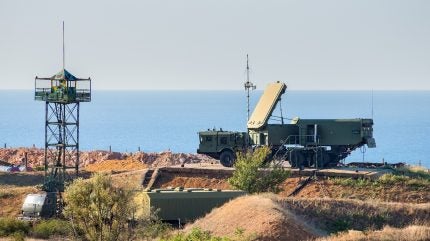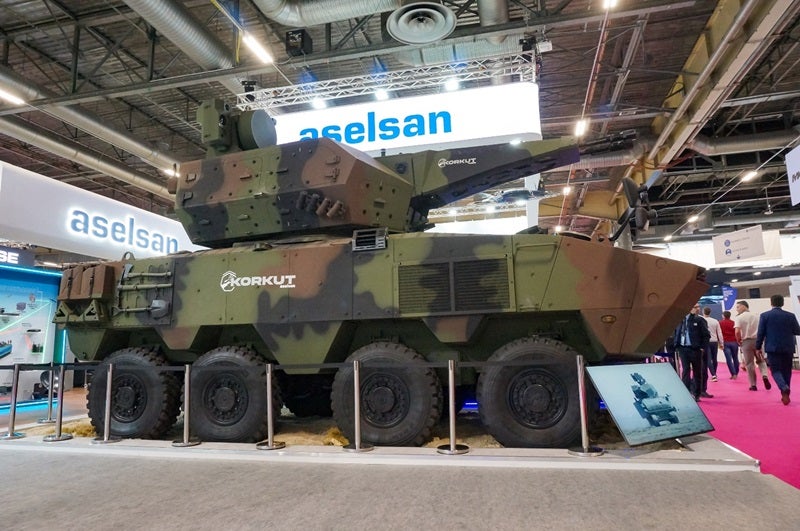
Türkiye has made headway on its future security umbrella, Steel Dome, a layered air and missile defence system.
The sovereign network will safeguard Turkish airspace from ‘very low altitude’ to ‘very high altitude’ and ‘very short range’ to ‘long range’ threats.

Discover B2B Marketing That Performs
Combine business intelligence and editorial excellence to reach engaged professionals across 36 leading media platforms.
At the end of March 2025, more funds were allocated to support photon detection and nanotechnology, radar integration and the smart production of air defence systems.
Aselsan, a leading Turkish defence supplier, will benefit alongside TÜBİTAK, a national science research institute and agency. Collectively, the financial incentive totals $616m (Tl234bn).
Such a network-centric air defence concept, a solution Israel has proven against Iranian salvos last year, has captured the imagination of countries in recent years, most recently the United States, whose own version has been dubbed ‘Iron Dome’.
Likewise, Türkiye first announced its own Steel Dome project in August 2024.

US Tariffs are shifting - will you react or anticipate?
Don’t let policy changes catch you off guard. Stay proactive with real-time data and expert analysis.
By GlobalDataA sovereign pathway in defence
Türkiye has devoted more to its sovereign defence industry in recent years. GlobalData intelligence found that the country has increased defence spending, reflecting a compound annual growth rate of 14.2% since 2020.
Aligned with this budget increase, Türkiye had planned in 2019 to produce 75% of goods domestically by the end of 2023. However, this goal remained unfulfilled in 2024.
Nevertheless, the princple has at least set in as President Recep Tayyip Erdoğan injects funds into certain areas of research and development across its defence industrial base.

This trend towards strategic autonomy is visible in the country’s defence ties abroad. Ankara has made a conscious effort to part from the US when it comes to the prospect of upgrading its F-16 combat aircraft. Instead, the UK Ministry of Defence told Army Technology that it will “continue the potential export of Eurofighter Typhoon to Türkiye,” confirming widespread reports from more than a week ago.
With sovereignty in mind, Türkiye also appears to be moving away from importing any more Russian air defences, beyond its four S-400 units (two of which have yet to be delivered).
This arrangement had originally risked the country’s entry into the group of global F-35 users under the former US President Joe Biden – a prospect that is no longer on the table given the trend towards strategic autonomy in Europe.
Now, however, Ankara will build more Aselsan air defence systems such as the KORKUT anti-aircraft gun, HİSAR missile systems, SİPER long-range missile systems and the GÖKDEMİR laser weapon.



